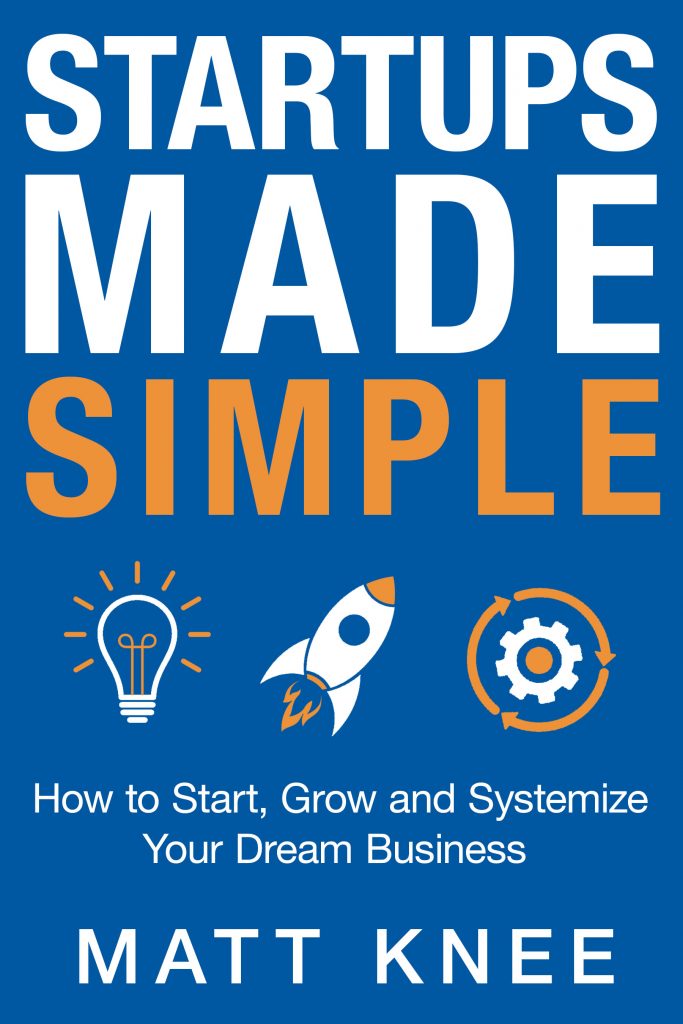Founder Superpower #1: Health
Below is an excerpt from Part One of our book Startups Made Simple: How to Start, Grow and Systemize Your Dream Business. Learn more about the book here.

When I talk about Energy as it relates to startups, I’m giving it a broad definition to include not only your physical health but also your mental health and things like perseverance, the mental toughness required to get you through the rough spots of being an entrepreneur.
Superpower #1: Health
“The first wealth is health.” – Ralph Waldo Emerson
Say there are two founders that have the exact same set of skills and knowledge but one is healthier than the other. Nine times out of ten, the healthier founder will outperform the other. Healthy founders simply have more mental and physical energy to bring to bear on the various issues that a startup encounters, not to mention they will be sick less and able to bounce back faster from setbacks. You want to prioritize your health and energy first, which will allow you to be more effective in almost every aspect of your life.
It’s critical that the founder not make the mistake of overworking and ignoring their physical health. Trust me on this. It’s almost a badge of honor how much founders work, but I’m of the belief that founder who works 40 hours a week but is well-rested, “clocks out” at night, takes proper vacations (even if just a 3-day “staycation” around the house), eats healthy, and most importantly, sleeps well, will easily outperform a neurotic founder who works 60 hours a week but doesn’t do these things. There’s much more on this in later chapters.
Remember: It’s not selfish to focus on your health. It’s actually moral and responsible for you to make sure you’re healthy enough to make sure your company survives and thrives, especially when others are counting on you.
Mental Health
Taking care of your mental health is as critical as your physical health (perhaps more). One thing I’ve noticed is how many of the “rock star” entrepreneurs and successful people I admire have worked on their mental game as much as their physical game.
In the book Tribe of Mentors by Tim Ferriss, nearly 80% of the successful people he interviewed have some form of meditation or relaxation practice. Arnold Schwarzenegger and billionaire hedge fund manager Ray Dalio have credited mindfulness meditation for much of their success. Being able to calm your mind is an incredibly valuable skill and has been a game changer for me personally. I list resources on this in the Chapter Resources.
Another aspect of mental health that affects a lot of founders is “imposter syndrome.” Imposter syndrome is very common among many high-performing people, and is where you feel like a fraud, feel that you don’t know what you’re doing, and fear that you’ll be exposed as a fake.
Trust me, this is very common and comes from the fact that you’re usually pushing yourself to learn new things as you grow your skills. Life and business never provides 100% certainty. When I learned that many world-changing geniuses and entrepreneurs also felt like this, it was an enormous relief.
One interesting thing is that pretty much nobody fully knows what they’re doing, and while that might be terrifying (my first thought: what about pilots!), it’s actually pretty relieving. By the way, pilots have lots of training and sophisticated help via a backup pilot, air traffic controllers, weather, and flight software, so as we discuss later, having systems and a team you trust will help in your startup journey.
A lot has also been written recently about loneliness and depression among founders. I’d be lying if I said that these things have never affected me or founders I know. If you’re a founder, you’re probably going to encounter times where you feel absolutely alone and nobody else really understands or cares, even your best friends and family. It’s not that they don’t want to help; it’s that they likely can’t possibly understand your specific situation at this time, and that’s totally normal.
Connecting with other founders locally and online is a great way to overcome loneliness. There are now so many communities, organizations, Facebook groups, Twitter personalities, and more that the “startup ecosystem” is now very big and supportive. In the resources section of this chapter, I list some great resources for connecting with fellow founders that can make this journey easier. Actually, one of the reasons I’ve structured this book in such a systematic manner is to overcome a major reason for depression: being overwhelmed and not knowing what to do next.
Hopefully, by breaking down this process into bite-size chunks, we can take some of the overwhelm out of the process. Taking care of your physical health is a big part of fighting depression. Finally, never be ashamed to admit you’re depressed to your doctor, friends and family, and get the help you need.
This was an excerpt from our book Startups Made Simple: How to Start, Grow and Systemize Your Dream Business. Learn more about the book here or see our previous excerpts here.